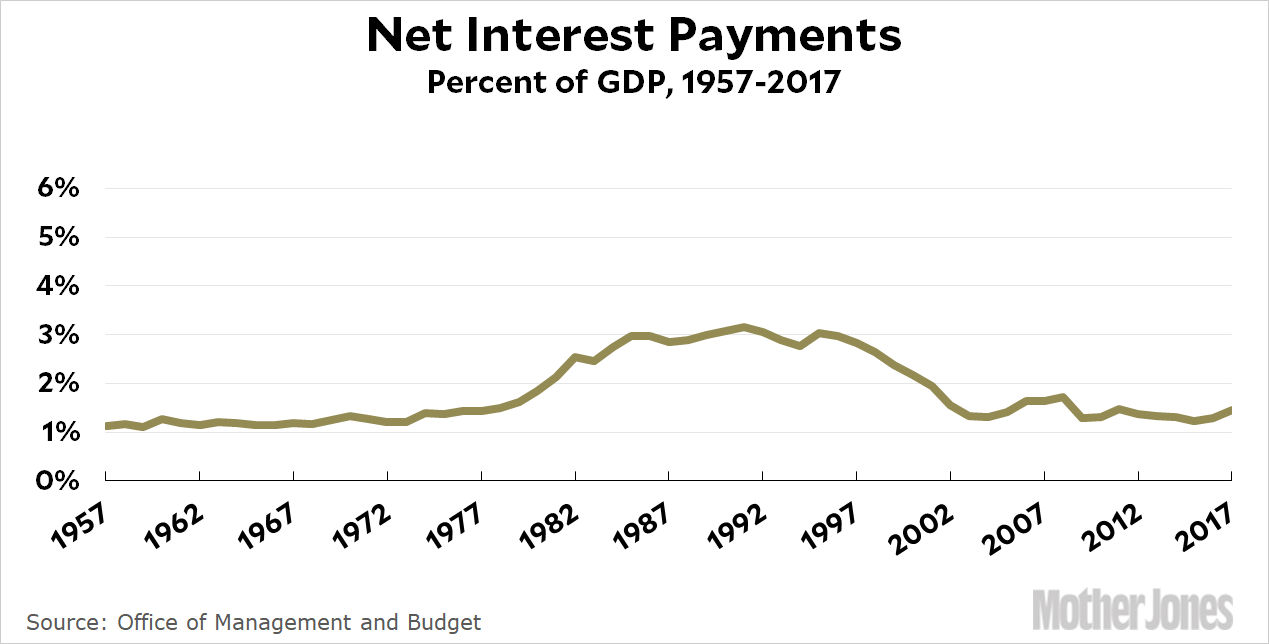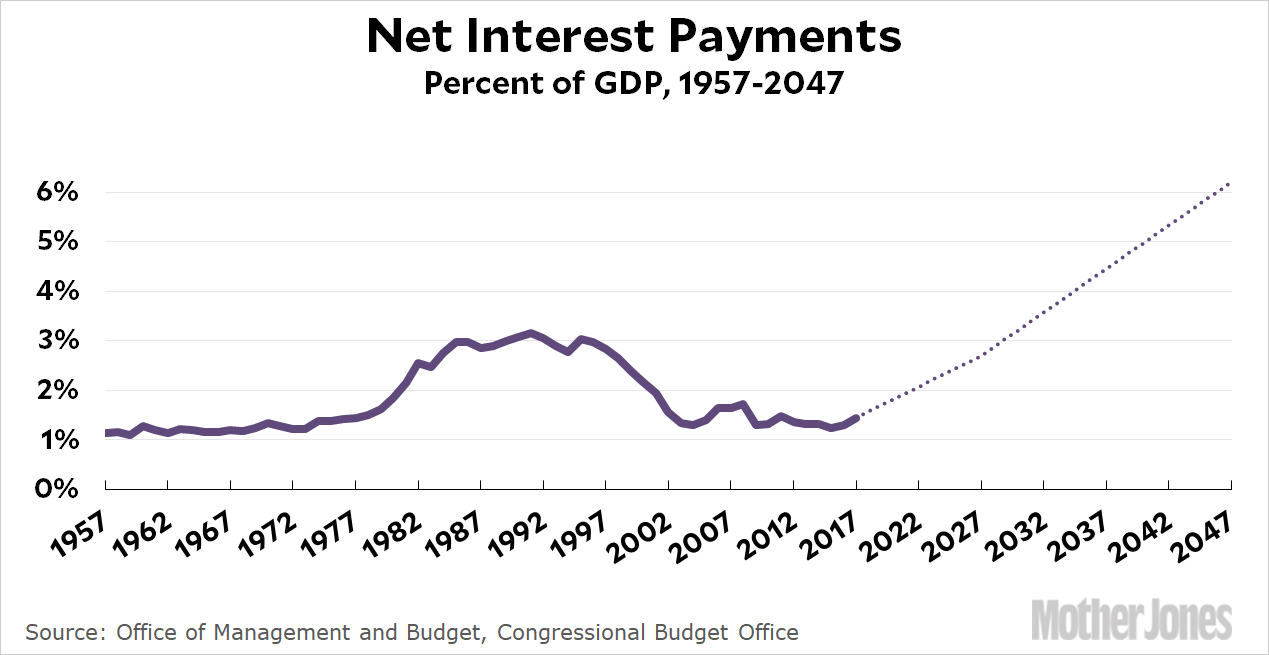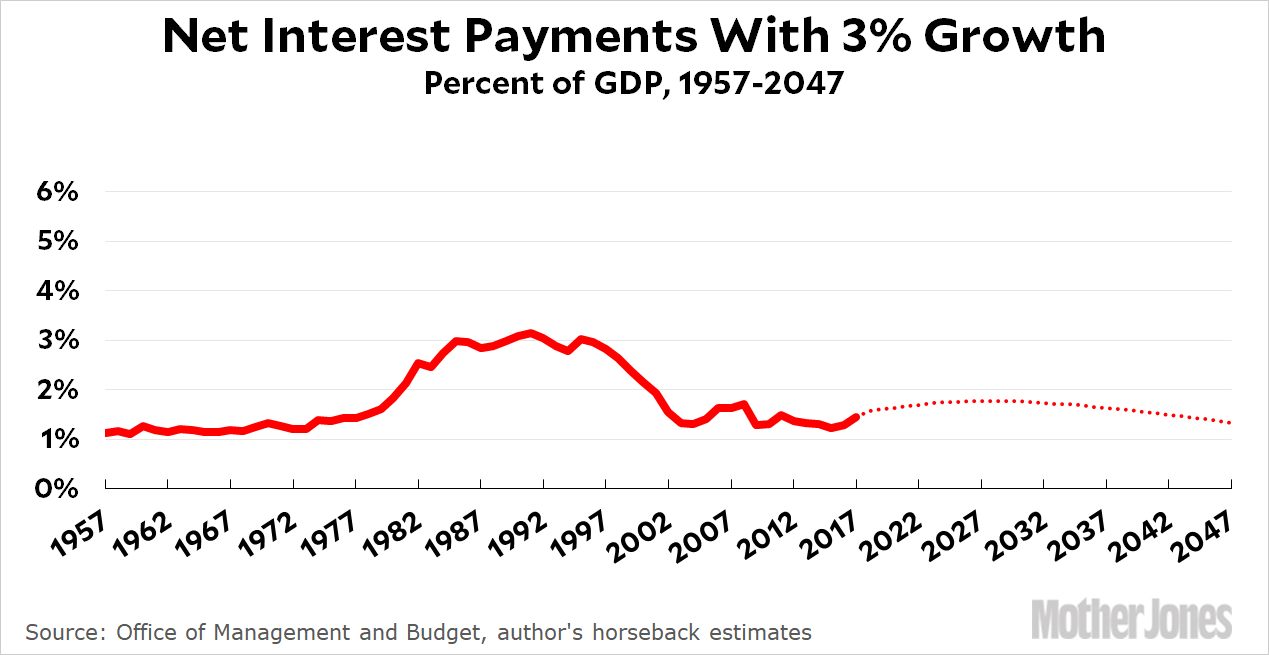Does the national debt matter? Opinions differ, but this isn’t a hard issue to analyze. What we really care about isn’t the debt per se, but interest payments on the debt. Here it is:

That doesn’t look like anything to worry about. For the last two decades, interest on the national debt has been a steady 1-2 percent of GDP.
So everything is hunky-dory? Not quite. The Congressional Budget Office says that the good times are over. Over the next three decades, interest expenses will skyrocket:

Yikes! It looks like we’re in big trouble.
Or are we? Republicans just passed a tax bill that they say will increase economic growth to 3 percent per year. Maybe more, in fact. But that means more tax revenue, lower interest rates, and higher GDP. I don’t have one of those rocket science financial models to tell me what that means, so I had to take an educated guess about how a higher growth rate would affect federal revenues, federal spending, the annual deficit, the national debt, and the interest payments needed to service it. Here it is:

Once again, we’re in good shape. Thanks, Republicans! I guess this means we don’t really have to worry much about the national debt anymore, do we?
POSTSCRIPT: There is a point behind this joke: Republicans can’t have it both ways. If they say their policies will produce 3 percent growth, then they also have to accept what that means for spending and debt. They can’t claim 3 percent growth when they’re pretending that their tax cut will pay for itself, but then turn around and use CBO’s growth rates when they want to raise the alarm about entitlement spending bankrupting us. It’s one or the other.

















